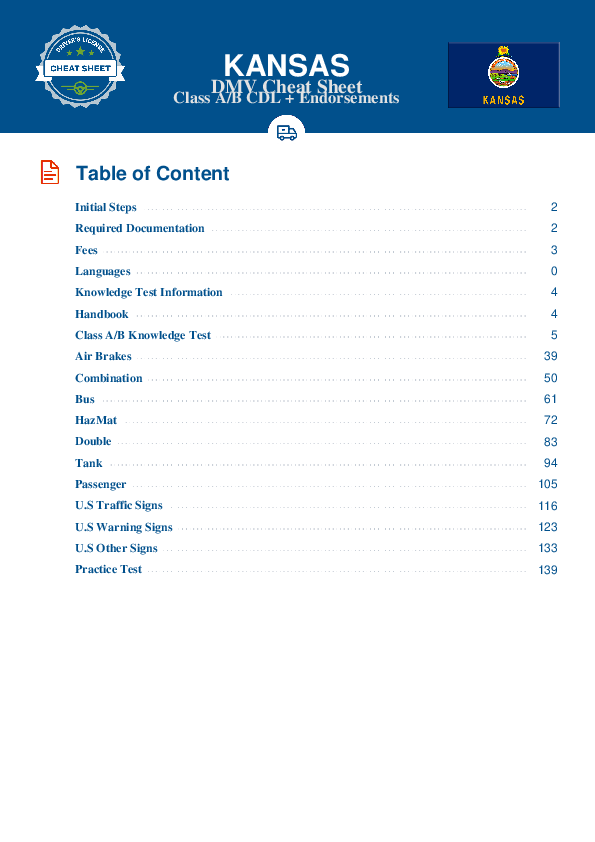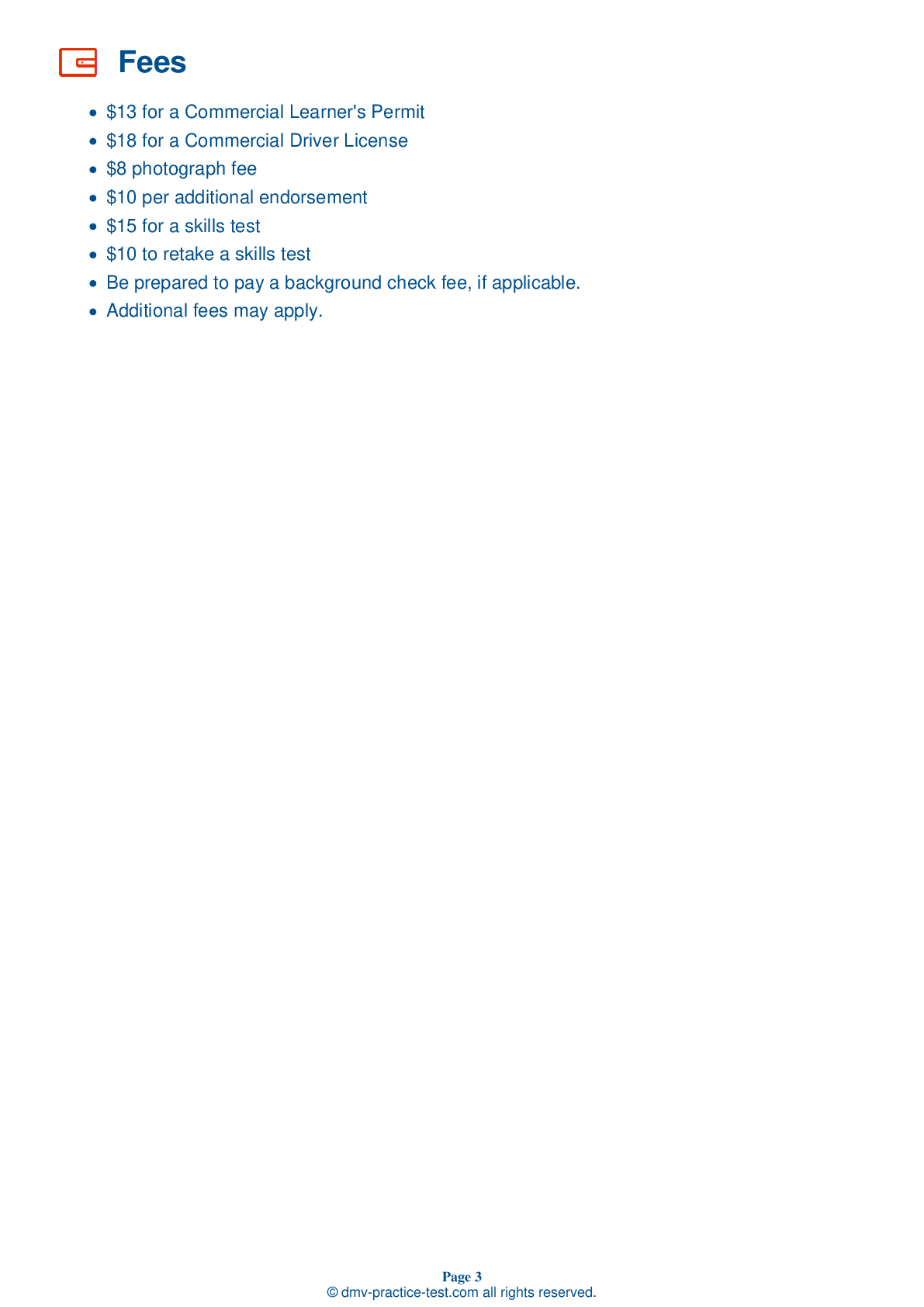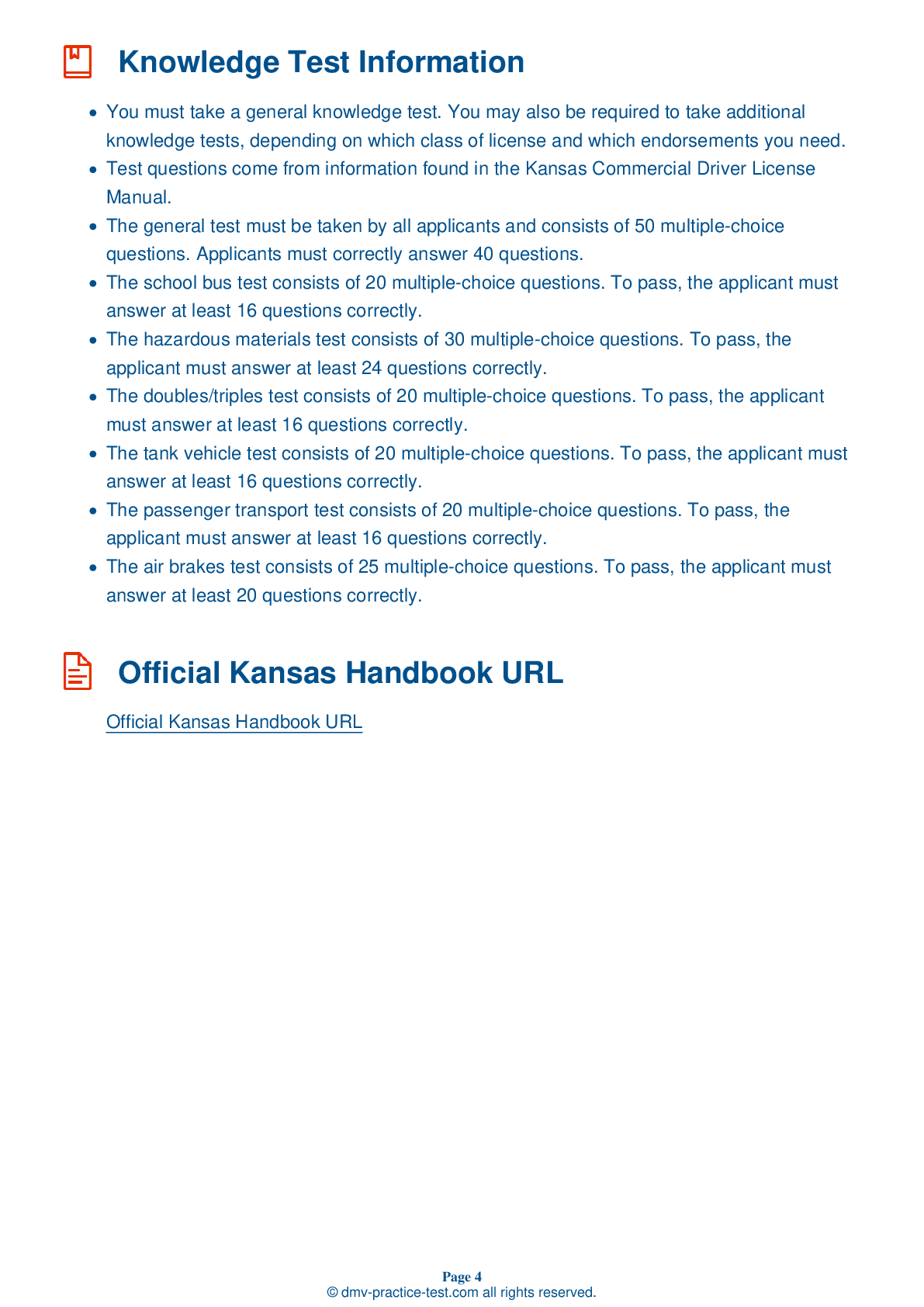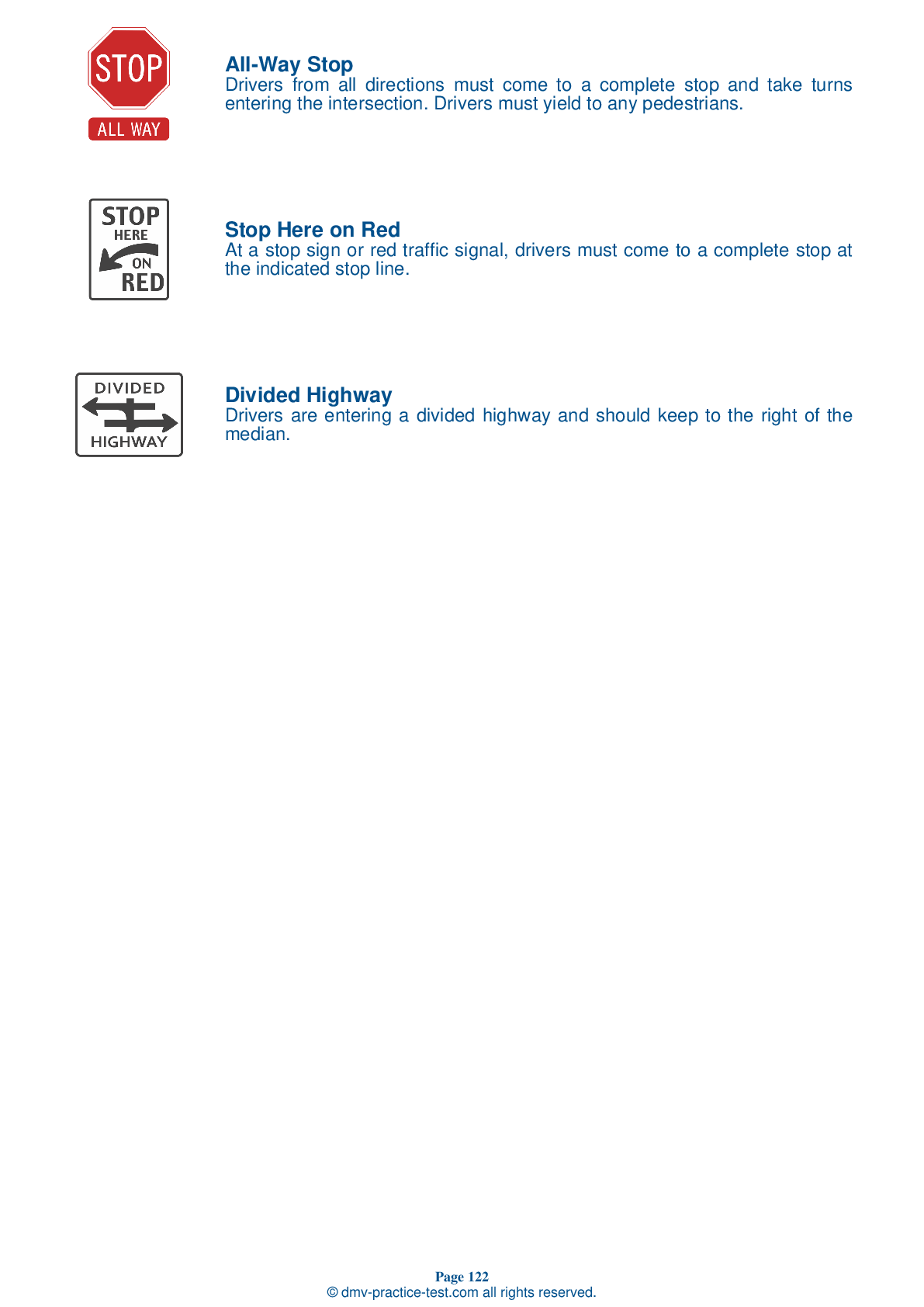Passenger #2
Passenger Endorsement | Kansas 2026 #2
Train for FREE with our Kansas CDL passenger endorsement practice test online. The official exam test consists of several obligatory parts, with all of them checking your knowledge of different blocks of road rules. If you need to obtain a KS DMV passenger endorsement in 2026, practice as much as possible. Free sample tests published on our website will help you check and improve your knowledge and boost your grades. Please bear in mind that DMV requirements for issuing a CDL permit with passenger endorsement may vary from state to state.
20
16
20
1 . A low air pressure warning signal should activate:
When tank pressure falls below 5 psi.
In an air brake system, a low air pressure warning signal must come on if air pressure in the tanks falls below 60 psi. This warning signal may come in the form of a light, a buzzer, or a wig wag.
2 . When inspecting the interior of a bus, you should:
Not waste time looking at the handrails and floor lining.
When inspecting the interior of a bus, you must make sure everything is safe and in proper working condition. Make sure all signaling devices, such as bathroom emergency buzzers, work properly.
3 . When driving in fog, you should:
Use the heater.
If you must drive in fog, you should use your low beam headlights and fog lights, even during the day.
4 . Multi-speed axles and auxiliary transmissions are used:
To make a vehicle less noisy.
On many vehicles, multi-speed rear axles and auxiliary transmissions are used to provide extra gears. They are usually controlled by a selector knob on the gearshift lever.
5 . In general, refueling a bus should be done:
By a passenger.
A bus should not be refueled while passengers are on board unless it is absolutely necessary. In particular, a bus with passengers on board should never be refueled inside an enclosed building.
6 . Which of the following is not a sign of a person being drowsy?
Yawning
Driving drowsy is dangerous and should always be avoided. Warning signs of drowsiness include frequent blinking, your eyes closing or going out of focus by themselves, frequent yawning, and drifting between lanes.
7 . Hydroplaning usually occurs:
During the evening.
In places where water collects on the road, it is possible for a vehicle to hydroplane. Low tire pressure or worn tire tread makes this more likely to happen. If there is enough water on a road surface, hydroplaning can occur at speeds as low as 30 mph.
2026 Kansas | Frequently Asked Questions
A CDL Class A license in Kansas is defined as a commercial driver's license that permits the holder to operate any combination of vehicles with a gross vehicle weight rating (GVWR) of 26,001 lbs or more, given that the GVWR of the vehicle(s) being towed is over 10,000 lbs. This typically includes tractor-trailer combinations.
A Class A CDL license in Kansas allows the holder to operate tractor-trailers, truck and trailer combinations, tank vehicles, livestock carriers, and flatbeds. It's also required for driving any combination of vehicles with a Gross Vehicle Weight Rating (GVWR) of 26,001 lbs or more, where the towed vehicle is over 10,000 lbs.
To obtain a Class A CDL license in Kansas, you must be at least 18 years old (21 for interstate driving), possess a valid Kansas driver's license, pass a vision test, and complete a medical examination. You'll also need to pass written knowledge tests and skills tests, which include a pre-trip vehicle inspection, a basic vehicle control test, and an on-road driving exam.
In Kansas, you must be at least 18 years old to qualify for a Class A Commercial Driver's License (CDL) for intrastate driving (within Kansas only). However, you must be at least 21 years old if you plan to drive commercially across state lines (interstate driving).
Specific endorsements are not required for a Class A CDL license in Kansas, but they can enhance your driving privileges. For instance, endorsements for tanker vehicles (N), passenger vehicles (P), school buses (S), and hazardous materials (H) allow you to operate specialized vehicles. To get these endorsements, you must pass additional written and skills tests.
The Class A CDL skills test in Kansas encompasses three parts: a pre-trip inspection, a basic vehicle control test, and an on-road driving test. The tests assess your ability to inspect your vehicle before trips, control the vehicle in various situations, and drive safely in traffic. You must pass all three parts to get your Class A CDL license.
Yes, there can be limitations for Class A CDL license holders in Kansas. These are often referred to as restrictions and may include: not being able to operate a vehicle with air brakes (L restriction), only operating automatic transmission vehicles (E restriction), or only driving within Kansas (K restriction). These restrictions depend on the driver's skills and the type of vehicle used during the test.
In Kansas, the written Class A CDL test is primarily administered in English, as federal regulations require all commercial drivers to read and speak English sufficiently to converse with the general public, understand highway traffic signs and signals, and respond to official inquiries. However, it's best to contact your local DMV office for any language accommodations.
Yes, individuals with disabilities can request accommodations for the Class A CDL written test in Kansas. The Kansas Department of Revenue, Division of Vehicles is committed to providing equal access to its services. If you have a disability and need an accommodation, contact your local DMV office to discuss available options and requirements.
If you fail the Class A CDL written test in Kansas, you're allowed to retake it. However, you must wait until the next business day to do so. There's no limit on the number of times you can retake the test, but each attempt requires a new testing fee. It's advisable to study thoroughly before reattempting.



